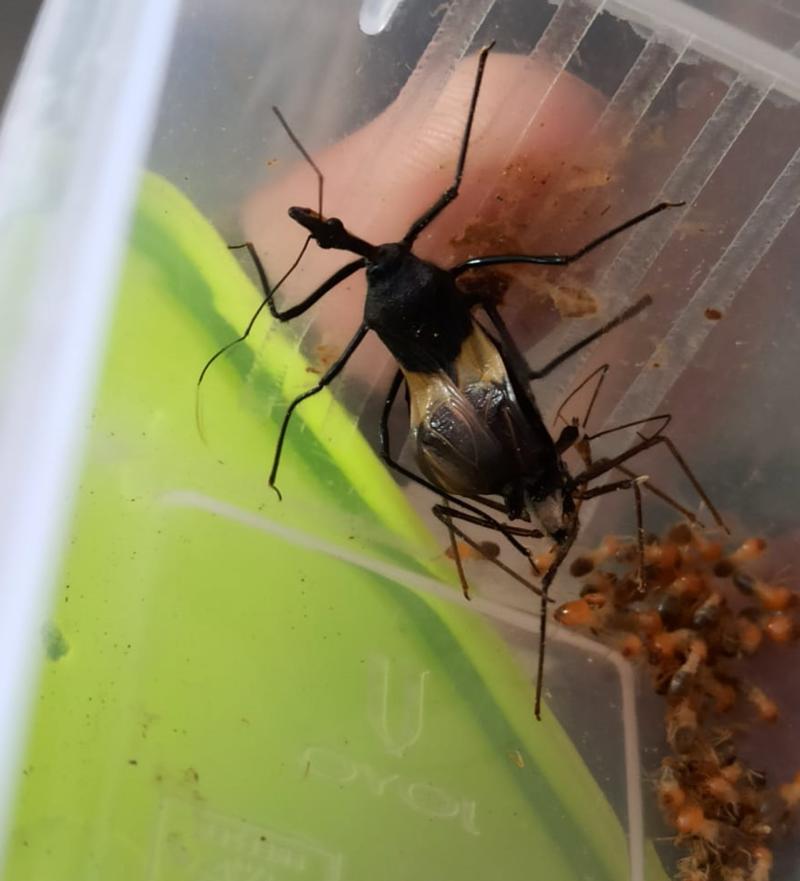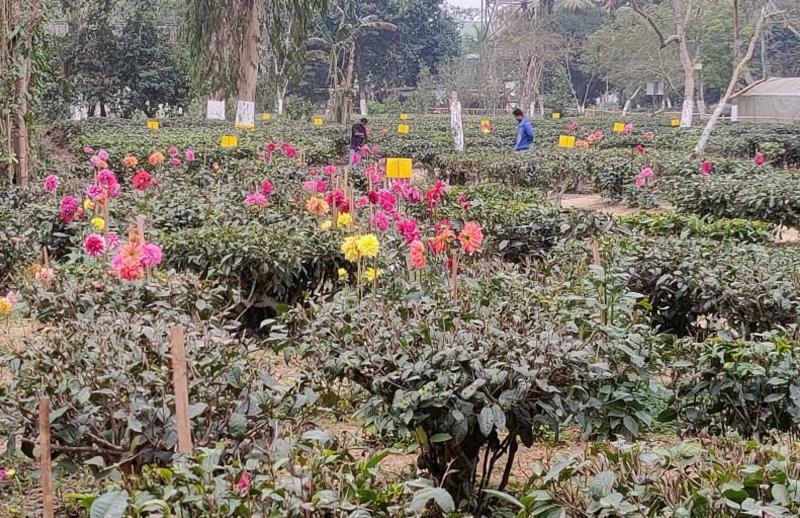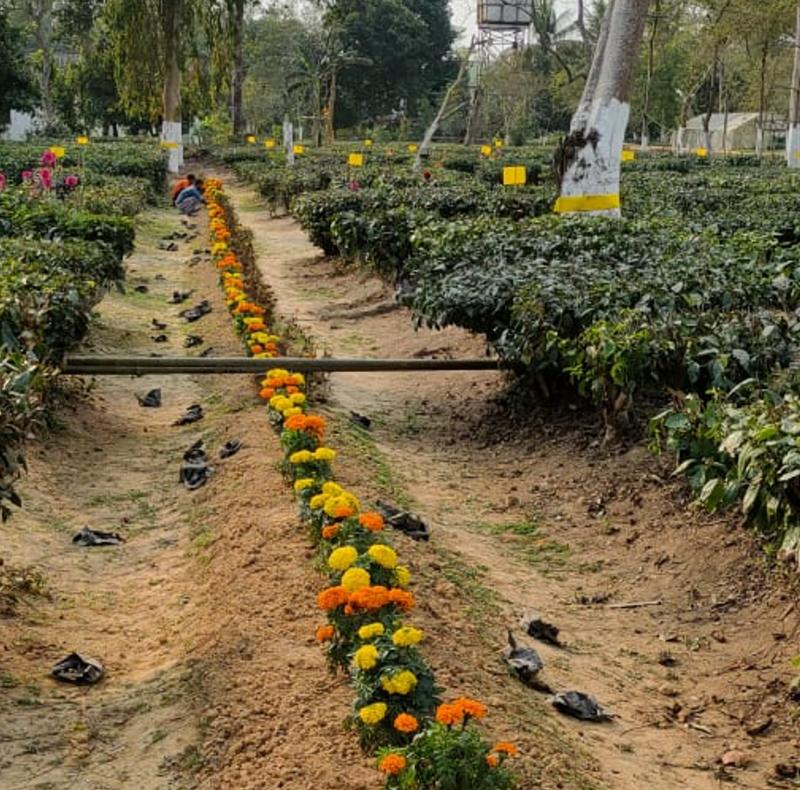India has launched a biological attack against the “enemy of tea,” which is devouring the tender shoots of the tea plant, considered to be the best for tea making, resulting in heavy crop loss for the industry over the years.
The Tocklai Tea Research Institute, the world’s oldest such research facility located in India, recently released a swarm of insects in one of the institute’s experimental gardens. These insects target tea pests like looper and tea mosquitoes, considered to be the worst enemies of the tea bush in the region.
“The Reduviid [Sycanus collaris] insects are predatory in nature and feed on looper and tea mosquitoes,” said Azariah Babu, the director of the Tocklai Tea Research Institute. “We strongly believe that this biological war against the tea bugs would be a long term success story for the tea industry in India.”

India’s Tea Industry Experiences Some of the Worst Attacks by Pests
Pest attacks are common in tea plantations in India. Tea gardens, especially those located in tea-rich eastern Assam, witnessed the worst attacks by pests in 2022, when several gardens faced huge crop losses. The use of pesticides may be the only weapon to control these bugs, according to experts. In 2022, pesticides could not be applied on time in many tea gardens due to COVID-19 lockdowns. As a result, according to an estimate, major tea companies in India lost around 20 to 25 percent of their crops due to bug menaces.
“We are spread out, so the overall loss was around 20 percent,” said a senior official of the Amalgamated plantations private limited. One of the major players of tea in India, the company has gardens in both the Assam and West Bengal states in India.
The Tocklai Tea Research Institute director said the recently used biological method to control pests in the tea bushes in India would reduce the load of pesticides, and it’s common practice for some tea plantations in India.
A study conducted by an NGO, Greenpeace, about a decade back had allegedly found the presence of harmful pesticide residues in tea sold by leading brands. The NGO had then urged the tea sector in India to move away from the pesticide treadmill and had asked them to adopt an ecological agriculture farming approach.
Last year, both international and domestic buyers rejected a series of tea consignments from India due to the presence of pesticides and chemicals beyond permissible limits.
In 2021, India exported 195.90 million kg of tea and the major buyers were Commonwealth of Independent States nations and Iran.
The Tocklai director said that reduviid insects were a part of the tea ecosystem in earlier times, but with the frequent use of pesticides in tea plantations, these insects have almost vanished.
A few reduviid insects were collected from the Dooars and Terai regions of West Bengal, reared at a laboratory of the institute, and observed for their predatory behavior. The population increased soon after. “It was found that an adult female could devour up to eight larvae of looper per day,” said Somnath Roy, an entomologist at the Tocklai Tea Research Institute.
Roy noted that the basic aim of this recent project was to reduce the load of pesticides in Indian tea and to create an ecological heaven in the tea gardens.
He added that Tocklai has been conducting experiments successfully, wherein it has been found that seasonal flowering plants like marigold, gladiolus and dahlias – if planted amidst tea bushes – are good insect repellents, especially those which feed on tea leaves.
“Planting of these seasonal flowering plants in tea gardens would not only help repeal pests but would become a source of income for tea planters, especially the small tea growers who can make an extra income by selling these flowers during the winter season which is a non-harvesting season for tea,” said Roy.
Seasonal flowers are in great demand in India, especially for marriage parties for decoration and in the temples to offer to the deity.

Tocklai also plans to involve the small tea growers’ community in India to harvest reduviid insects, which they could sell to big gardens in future. “It’s an easy process to harvest these insects and could be another source of income for the small tea growers,” said Roy.
Small tea growers today play a vital role in Indian tea industry producing more than 50 percent of the total production.
Roy explained that several insects – all enemies of tea leaves – are common food for bird species like the local myna and the bats.
“We are trying to create an atmosphere at tea gardens where these birds could return back and check the growth of tea pests’ population,” the entomologist explained.
He pointed out that planting of fruit plants amidst tea bushes would do the trick in attracting these birds to the tea gardens.
“We at Tocklai are trying to create an atmosphere at the tea gardens wherein we have enough natural arsenal to eliminate the bad elements,” he concluded.
It seems the war has just begun.

Pullock Dutta – based in Assam, near the Tocklai Tea Research Institute – is a freelance journalist, contributor to World Tea News, and a previous special correspondent of the Telegraph in India for more than two decades.
Plan to Attend or Participate in the
Annual World Tea Conference + Expo
To learn about other key developments, trends, issues, hot topics and products within the global tea community, plan to attend the annual World Tea Conference + Expo in Las Vegas, co-located with Bar & Restaurant Expo. Visit WorldTeaExpo.com.
To book your sponsorship or exhibit space at the World Tea Conference + Expo, or to enquire about advertising and sponsorship opportunities at World Tea News, contact:
Ellainy Karaboitis-Christopoulos
Business Development Manager, Questex
Phone: +1-212-895-8493
Email: [email protected]
Also, be sure to stay connected with the World Tea Conference + Expo on social media for details and insights about the event. Follow us on Twitter, Facebook, Instagram and LinkedIn.
